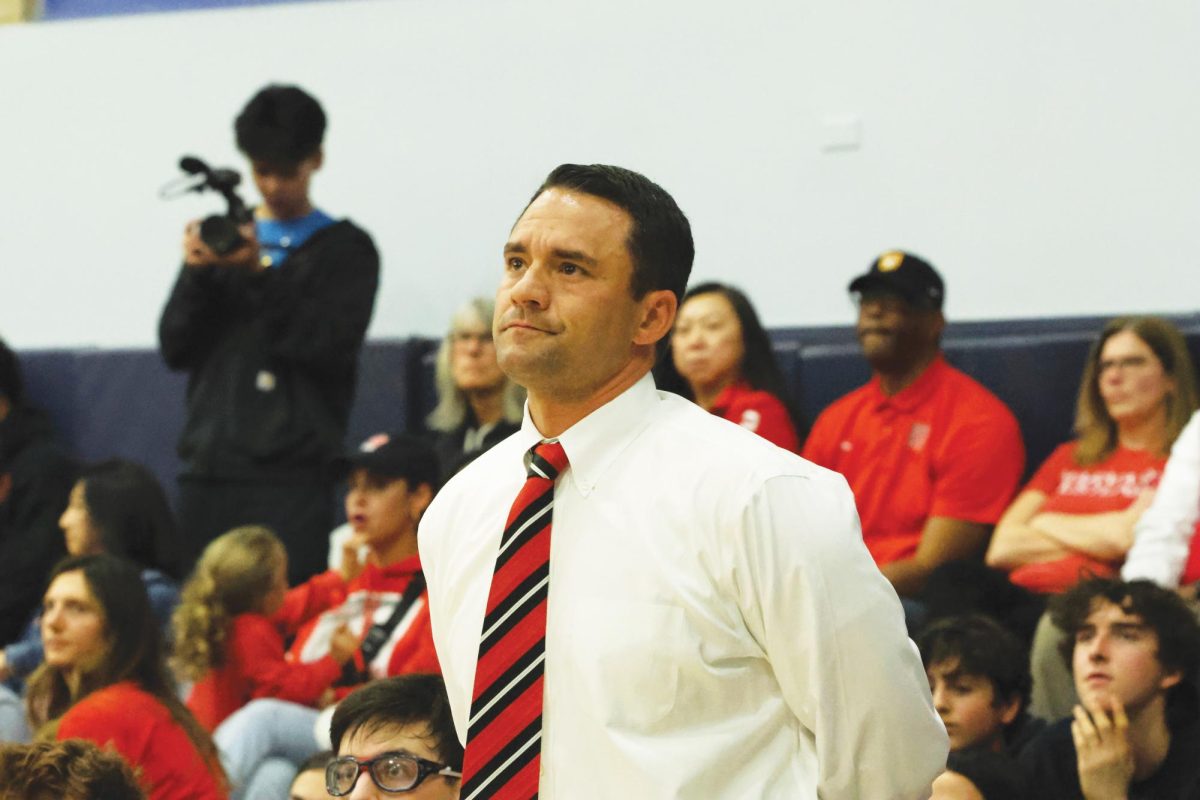By Adam Gold
Performing Arts teacher Ted Walch announced to his first period class last week that all he wanted for Christmas was, well, nothing. That is, not from any of his students.
âIf you feel you want to give me a gift,â he told the class of eight, âgive the money to charity, or give it to somebody who needs it.â
When teachers pack up their notebooks to leave for winter break, many carry with them a stack of gifts, parcels enclosed in festive wrapping paper, or if they came from the oven, tin foil.
The size and shape of the stack varies from teacher to teacher, but amid the baked goods and chocolate confections are sometimes wedged designer perfumes, expensive gift certificates or even bottles of champagne. The cost of some holiday presents can give teachers a real shock.
âWhen someone gives me a plate of fudge that they made at home, thatâs lovely. Thatâs nice,â Walch said. âBut when someone gives me a $500 gift certificate to Neiman Marcus, Iâm a little embarrassed.â
Though most gifts are sentimental in nature, they can be uninformedâdiabetics occasionally get boxes of chocolate and recovered alcoholics have received bottles of wine, one teacher said. Rarely, parents may even give teachers gifts of cash.
âFor a parent to slip cash hand to hand is probably awkward for everybody,â middle school Dean Paul Mastin said.
Laura Hartman, a professor of business ethics at DePaul University, argues that when teachers accept any gifts from students or their families, they run the risk of allowing the gift to color their actions.
âYou certainly have potential for conscious bias, no matter what, but then you also have potential for unconscious bias, even among the teachers with the highest integrity,â she said.
Teachers and administrators, however, insist that they are in no way swayed by what presents they receive, and he school has no official policy.
âIf parents are trying to kiss up by giving somebody a nice gift, the nice gift is appreciated but itâs not going to be reflected in the childâs grades,â President Thomas C. Hudnut said. âI think itâs just a way of people saying thank you to teachers for being there.â
Teachers often assume that for many affluent families, presenting lavish gifts is the best way they know to express gratitude, not a bald-faced attempt to curry favor with educators.
âIf you look at the movie business, the protocol, the guidelines for giving among agents and studios and managers and actors is as rigid as some sort of Hassidic law,â Walch said.
In addition, if parents are inclined to spend big bucks on holiday teacher gifts, they typically donât spend it only on the teacher they hope to impress.
âParents who give lavish gifts will give them to six teachers, not just to one and a can of dog food to the others,â Hudnut said.
Still, some educators worry that the practice can become just another way for parents to compete with each other.
âI guess the fear is that gift giving can become competitive,â Hudnut said.
âYou certainly donât want the teachers to be caught in the middle of it and have to respond,â Hartman said.
Often, a parent will purchase the holiday gifts on his or her own and hand them to the student on the morning of the last day of classes.
âThe parents get nice things and the kid carries it to school and delivers it,â Walch said. âI go, âHey, what is it?â and they go, âI donât know.â They donât.â
Some school districts have dealt with the issue by banning gifts to teachers entirely. In 2004, public schools in New York City set a $5 per student spending limit on teacher gifts with the goal of shielding poorer families that can not afford lavish expressions of gratitude and eliminating conflict of interest.
However, many such policies have had little effect. New York City parents continue to bend the $5 rule when they feel a teacher deserves recognition according to a New York Times article, and teachers are reluctant to return gifts.
Brentwood School requires teachers to report all gifts worth more than $250 to the business office as a potential conflict of interest. In 2003, Headmaster Michael Pratt wrote an article in the parentsâ newsletter asking parents to donate to the school rather than offer teachers individual gifts.
However, Walch is not alone in asking his students to hold off on the gifts. Spanish teacher Margaret Riemer, visual arts teacher Marianne Hall, and basketball Coach Greg Hilliard each tell their students they would prefer parents donate money to charity.
âI do get Christmas gifts from kids, which would be gift certificates or other nice little gestures of thank you,â Hilliard said. âBut I wonât take a big gift like Lakers tickets because even the cheapest seats are expensive. Itâs my own personal rule for dealing with the tough decisions that I have to make during the year.â




































